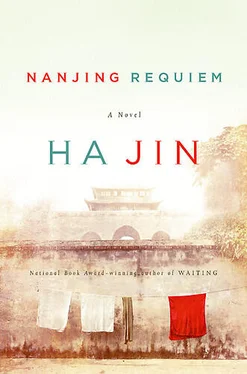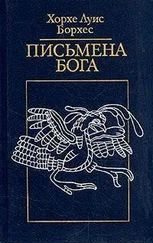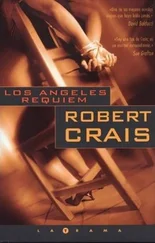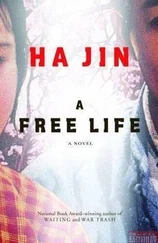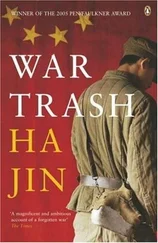Minnie thanked Dr. Chu and proposed a toast on behalf of the college and the women whose menfolk had gotten out of jail in June. We all clinked cups and drank. Alice and Donna wouldn’t touch alcohol, so they chose tea instead, but Minnie had to drink some to please the guest of honor and the host, my husband, who didn’t speak much but smiled continually. At last he could enjoy himself a little. Meanwhile, I was busy making sure that every dish was served properly.
Dr. Chu was wearing a conventional quilted robe, which made him resemble a country gentleman, with his hair parted down the middle. “Tell me, Mr. Gao,” he said to Yaoping, putting down his cup after another swig, “how much did you pay for this Five Grain Sap?”
“Four yuan a bottle.”
“No way can you get the genuine stuff here for that price.”
Yaoping chortled, “I can taste it’s fake too, but this is the best available on the black market.”
“This is good enough — it tastes like it’s brewed only from sorghum. It brings back happy memories, though.”
“Yes, we can drink this as One Grain Sap,” Yaoping said flatly.
Rulian translated their exchange for Alice and Donna, who both giggled.
When Minnie mentioned Yulan, Dr. Chu told her, “I don’t know if I can help get Yulan out of the hospital, but for the time being I can get you a pass so you can visit her.”
“Thanks,” Minnie said.
I knew he was a sincere man, and if he could have done more, he would have. Dr. Chu talked about the situation in Zhenjiang, his hometown. The Japanese had taken that city a week before Nanjing the previous winter and destroyed a good part of it. “It was worse than here,” Dr. Chu said. “They killed a lot of people and the town is still rather empty. My parents’ house has become an officers’ club, a cabaret of sorts.”
Somehow everyone at the table spoke in a calm voice despite the sad topic. Donna shook her head, a mass of tawny curls, rolled her long-lashed eyes, and said, “Don’t you Chinese hate the Japanese?”
“I hate the traitors more,” Shanna replied.
Rulian said, “If the Chinese keep selling our country, we deserve to be enslaved.”
I shot her a dirty look, but she continued, “I mean, China can be conquered only from within.”
Batting her gray-blue eyes, Alice seemed to understand their conversation merely in part and said, “When I was in Japan, most people there were polite and gentle. Certainly they believed the war was good for their country, but very few of them were vicious and violent. To be honest, I felt quite safe there.”
Minnie translated her words for the guest of honor and my husband. That made the table silent for a moment. Then Dr. Chu said, “In war, victory justifies all sorts of violence. A complete victory means to have finished off the enemy. In fact, I believe that the Japanese committed all the atrocities as a celebration of their victory, as a kind of reward and gratification. That’s why they acted with so much bravado and even beheaded people as a sport.”
“That must be true,” Minnie agreed. “On the other hand, some of the soldiers who came to our campus later on were polite and well behaved, totally different from those brutes who were here last winter.”
“I just hate every one of them,” I joined in.
“Oh, come on,” Yaoping said, “you’re supposed to love your enemies.”
That had the table in stitches. In the other room, Fanfan prattled in his sleep while Liya was humming a lullaby, her voice sweet and childlike.
Dr. Chu stood, raised his cup, and proposed a toast with so much emotion that his mouth went a little askew. “Let’s drink to this great woman.” He pointed at Minnie. “She not only sheltered ten thousand women and children from harm’s way but is also devoted to educating the weak and the impoverished. Let me say this: she’s a real man — superior to any man in this city. China doesn’t lack clever people — we Chinese are way too smart and too pragmatic. This country needs people with sincere hearts willing to serve and take pains.”
Minnie got up, but before she could speak, we had already let out “Cheers!” and touched cups.
She sipped her apricot wine and said, “Please consider what we’ve been doing as our Christian duty. Any one of us, given the same circumstances, would do the same. The other day I came across this aphorism in the Quaker calendar Mrs. Dennison sent me, and I want to share it with you: ‘Doing what can’t be done is the glory of living.’ ”
Big Liu proposed, “Yes, let’s drink to the impossible task ahead.”
Some of us laughed, and we drained the last drops in our cups.
For dessert, we had walnuts, honey oranges, roasted chestnuts, and jasmine tea. I brought out a small basket of spiced pumpkin seeds, which we cracked while conversing.
The fake Five Grain Sap went to Dr. Chu’s head and loosened him up. Now tipsy, he kept saying he felt ashamed of being a man. For him, the cause of Nanjing’s tragedy was clear and simple, and no one but the Chinese men should be held responsible — because they couldn’t fight back the invaders, their women and children were subjected to abuse and killing, so a foreign woman like Minnie had to step up to save lives and to do superhuman work. He even wept for a few moments, insisting that he wasn’t a man either and wished he hadn’t rushed back from Germany, driven by his youthful aspiration of saving his beloved China. This country was a hopeless quagmire and an endless nightmare. “It’s an eternal heartache!” he declared. He should have gone to Italy or Switzerland or to an eastern European country, since with a medical degree from a top German university he could practice anywhere. In short, he claimed that he was a weakling, plus an idiot, who had put himself at the enemy’s disposal. No wonder some people viewed him as a traitor.
His ravings pained my heart because I was reminded of my son. Haowen must have moments of despair like this; he might even feel worse, for he was actually serving in the Japanese army. Soon Dr. Chu calmed down and resumed speaking with the others in an amiable voice. When dinner was over, he refused to let Big Liu accompany him home. He said, “No Japs in town dare stop me.”
IN LATE DECEMBER we heard from Haowen again. A photograph enclosed in the letter showed that Mitsuko had given birth to a baby, so we now had a grandson who carried our family’s name. I had mixed feelings, though Yaoping was happy and even reminisced about his student days in Japan, of which he still had fond memories. He used to say that a Japanese woman could make a good wife. I had nothing against our daughter-in-law, who seemed to be a fine girl, but I was unsure if she and Haowen, now plus a baby, would have a happy life together. The hostility between the two countries would cast a long shadow on their marriage.
On the back of the photo my son had inscribed “Mitsuko and Shin.” The baby had Haowen’s round eyes and wide nose, not his mother’s smooth cheeks and tapered eyes. Mitsuko’s egg-shaped face had the calm and mild expression of an older woman, someone who already had a bunch of children. As I was observing her, her mouth seemed to be moving, saying something I couldn’t understand. I put down the picture, my eyes misty.
Yaoping and I talked about whether to ask Haowen for Mitsuko’s address so we could write to her, but we decided not to contact her directly while the war was still going on. That might get our family, and perhaps hers as well, into hot water. Someday we might go to Japan to see our grandson if he and his mother couldn’t come to visit us. Ideally, Haowen would be able to bring his wife and son back to China. But for the time being we kept the matter secret. If people knew of it, our family would be disgraced.
Читать дальше
